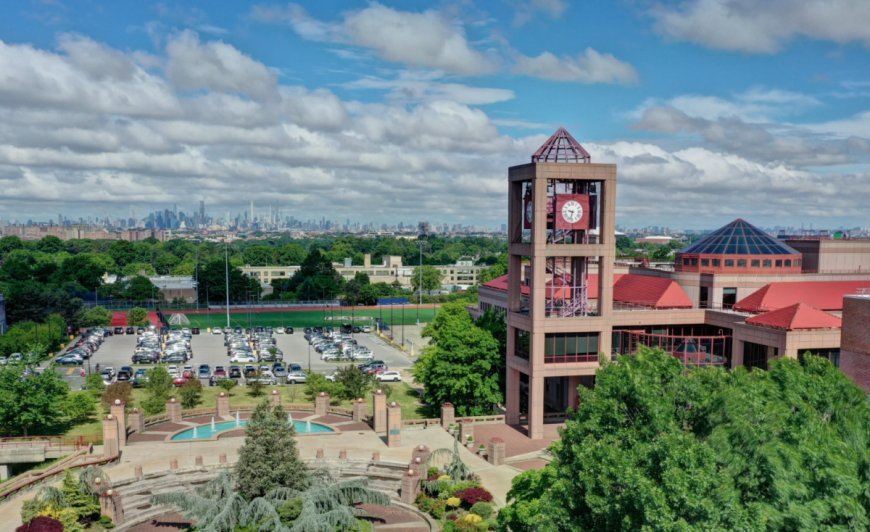Jewish donors and the case for CUNY
High-profile Jewish donors made headlines during the last academic year when they halted financial support for Ivy League universities, but there was surprisingly little public debate over where else those funds might go. Marc Charendoff proposed the minyan idea in eJewishPhilanthropy, and Bret Stephens offered his own challenge in The New York Times: “If you... Read More

 High-profile Jewish donors made headlines during the last academic year when they halted financial support for Ivy League universities, but there was surprisingly little public debate over where else those funds might go. Marc Charendoff proposed the minyan idea in eJewishPhilanthropy, and Bret Stephens offered his own challenge in The New York Times: “If you are an Ivy League megadonor wondering how to better spend the money you no longer want to give to a Penn or a Columbia,” Stephens wrote, “maybe it’s time to forgo the fading prestige of the old elite for the sake of something else, something new.”
High-profile Jewish donors made headlines during the last academic year when they halted financial support for Ivy League universities, but there was surprisingly little public debate over where else those funds might go. Marc Charendoff proposed the minyan idea in eJewishPhilanthropy, and Bret Stephens offered his own challenge in The New York Times: “If you are an Ivy League megadonor wondering how to better spend the money you no longer want to give to a Penn or a Columbia,” Stephens wrote, “maybe it’s time to forgo the fading prestige of the old elite for the sake of something else, something new.” The City University of New York (CUNY) is likely not the “something” Stephens had in mind, but it should be up for consideration.
CUNY has the largest number of Jewish undergraduates of any university system in the United States: some 13,500 undergraduates, according to Hillel International. Like most CUNY undergraduates, Jewish students are primarily first-generation college students and/or first-generation Americans. They come from Latin America, Israel, the former Soviet Union, Iran and Syria, and they attend CUNY for many of the same reasons earlier generations did when City College was known as “the Jewish Harvard: the high cost of private college; ongoing family responsibilities; cultural preferences that discourage leaving home before they are married; and CUNY’s renewed attention to honors programs.
 Members of the Bukharian Culture Club at Queens College pose with traditional doira instruments. Queens Hillel/Facebook
The Ivies have about 9,650 Jewish students, but this debate isn’t only about numbers — it’s also about preserving and promoting values like equal opportunity and civic engagement. While donors and thought leaders lament the disappearance of these values from elite schools, CUNY students live and act on those values every day. Against difficult odds, they pursue a fraying but persistent version of the American dream in the very city where many megadonors live and make their fortunes. CUNY campuses are among the most powerful engines of upward mobility in the country. These campuses do not lack pluralism, nor merit; rather, they lack resources taken for granted at private residential schools, including academic and career advising services, mental health support, even cafeterias.
Members of the Bukharian Culture Club at Queens College pose with traditional doira instruments. Queens Hillel/Facebook
The Ivies have about 9,650 Jewish students, but this debate isn’t only about numbers — it’s also about preserving and promoting values like equal opportunity and civic engagement. While donors and thought leaders lament the disappearance of these values from elite schools, CUNY students live and act on those values every day. Against difficult odds, they pursue a fraying but persistent version of the American dream in the very city where many megadonors live and make their fortunes. CUNY campuses are among the most powerful engines of upward mobility in the country. These campuses do not lack pluralism, nor merit; rather, they lack resources taken for granted at private residential schools, including academic and career advising services, mental health support, even cafeterias.(These campuses do share something with the Ivies, though: They have been difficult places for Jews over the past academic year. CUNY’s response to antisemitism, university-wide and on local campuses, has received mixed reviews; and the new school year kicked off with anti-Israel protests outside the Baruch College Hillel last weekend.)
The Charles H. Revson Foundation, where I work, chooses to reach Jewish students directly through the Hillels that serve CUNY, as does UJA-Federation of New York. (The Revson Foundation also supports CUNY directly through programs at City College and the Newmark School of Journalism.) The five CUNY Hillels we support have dedicated and talented directors who play an outsized role in the lives of students, providing Jewish programming and general support services that increasingly extend to non-Jewish students as well.
During a March visit to Queens College Hillel, for instance, I witnessed the buzz of Jewish student life and dedicated attention to the whole student. I watched students study text with visiting rabbis and others preview Purim costumes. I met with students who received help from Hillel when they were struggling with food insecurity or when they needed academic advice, career guidance or mental health services. I also noted when the Hillel director reminded the College Student Services office to review proposed city bus line changes — she had taken the time to read them and noticed they would interfere with student commutes — and that she was also the one to inform the campus community via email when police were called to investigate antisemitic graffiti in four campus buildings.
I received an elite education and am ever grateful for its gifts, especially the gift of opportunity. At CUNY, financial capital can create social capital, and do so at scale. In March, the Steven and Alexandra Cohen Foundation made a gift of $116 million to launch the Cohen Career Collective at LaGuardia Community College. This was the largest gift in CUNY’s history. For comparison, a year earlier Ken Griffin donated nearly twice that amount to Harvard University, which renamed the school’s faculty of art and sciences in his honor.
Too often, CUNY is considered part of the Jewish past rather than a driver of its future. While megadonors ponder new elite centers of excellence for higher education, there are thousands of CUNY students who aspire to excellence right now. A high-quality, well-resourced education helps us all to become “something else, something new.” Supporting these students benefits them, New York City and the larger Jewish community.
Elizabeth Leiman Kraiem is a senior program officer at the Charles H. Revson Foundation.
What's Your Reaction?




















